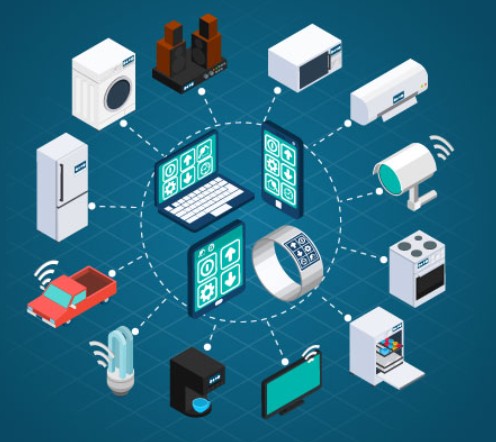
This page provides useful links with dividing into sub-categories. If you find it useful, then just bookmark it as a frequent used page.
![]() Internet a worldwide network
of networks. It is also the network of networks that
connects millions computers ( hosts). The internet is the virtual space in
which users send and receive email, login to remote
computers ( telnet), browse databases of
information ( gopher,
WWW, WAIS), and send and
receive programs (ftp) contained on these computers.
Please click the picture, to see visualization of the
various routes through a portion of the internet
connection. With more than 1 billion users in 2009, as of
June 2012 more than 2.4 billion people,
(there are 6.04 billion internet users in the world today as of 2-November 2025.
The total number of internet users around the
world grew by 294 million during the past 12 months. Globally, internet user numbers are growing at an
annual rate of 5.1 percent, but year-on-year growth is even higher in many developing economies.)
and world-wide WORLD INTERNET USAGE
today the Internet is poised to become a fully pervasive
infrastructure providing anywhere, anytime connectivity.
With the further deployment of wireless technologies, the number of
users of the Internet is expected to jump to some 4
billion in a matter of few years.
Internet a worldwide network
of networks. It is also the network of networks that
connects millions computers ( hosts). The internet is the virtual space in
which users send and receive email, login to remote
computers ( telnet), browse databases of
information ( gopher,
WWW, WAIS), and send and
receive programs (ftp) contained on these computers.
Please click the picture, to see visualization of the
various routes through a portion of the internet
connection. With more than 1 billion users in 2009, as of
June 2012 more than 2.4 billion people,
(there are 6.04 billion internet users in the world today as of 2-November 2025.
The total number of internet users around the
world grew by 294 million during the past 12 months. Globally, internet user numbers are growing at an
annual rate of 5.1 percent, but year-on-year growth is even higher in many developing economies.)
and world-wide WORLD INTERNET USAGE
today the Internet is poised to become a fully pervasive
infrastructure providing anywhere, anytime connectivity.
With the further deployment of wireless technologies, the number of
users of the Internet is expected to jump to some 4
billion in a matter of few years.
 New internet technologies
include advancements in connectivity like 5G and fiber optics, which provide
faster speeds and greater capacity. They also involve new platforms and applications such as the
Internet
of Things (IoT), artificial intelligence (AI), cloud and edge computing, and extended reality
(AR/VR) that
are creating new ways to connect, interact, and operate.
New internet technologies
include advancements in connectivity like 5G and fiber optics, which provide
faster speeds and greater capacity. They also involve new platforms and applications such as the
Internet
of Things (IoT), artificial intelligence (AI), cloud and edge computing, and extended reality
(AR/VR) that
are creating new ways to connect, interact, and operate.
The future of the internet points
to
a more immersive, decentralized, and AI-driven online world,
moving
beyond the current smartphone experience. Key trends include the
expansion of the metaverse with AR and
VR, a shift to decentralized networks (Web3) using blockchain,
and the integration of AI for enhanced user
experiences and security. Advanced hardware, such as brain-computer interfaces and haptic devices, will
enable more realistic and integrated online interactions.
National Cusines
 National cuisines are food traditions that are central to a nation's
cultural identity, shaped by factors like geography, history, and migration. Some of
the most widely recognized global cuisines include Italian, Chinese, French, and Japanese,
each known for unique ingredients and flavor profiles.
But, also there are tasty cusines which have more more unique and delicious like:
Türkmen Işlekli, çörek,
gutap and Uzbek palov, somsa etc.
Examples of national dishes include the Czech Republic's svíčková, Spain's paella, and Türkiye's
diverse regional foods.
National cuisines are food traditions that are central to a nation's
cultural identity, shaped by factors like geography, history, and migration. Some of
the most widely recognized global cuisines include Italian, Chinese, French, and Japanese,
each known for unique ingredients and flavor profiles.
But, also there are tasty cusines which have more more unique and delicious like:
Türkmen Işlekli, çörek,
gutap and Uzbek palov, somsa etc.
Examples of national dishes include the Czech Republic's svíčková, Spain's paella, and Türkiye's
diverse regional foods.